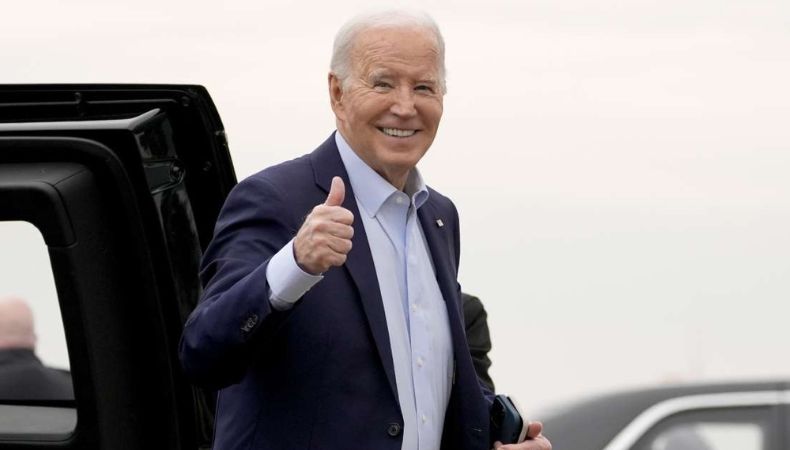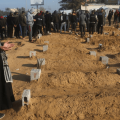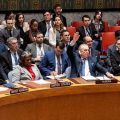Muslim Leaders Decline Opportunity to Dine with Biden Amid Growing Anger over Gaza

Last year, President Joe Biden received an outpouring of love and support from hundreds of Muslim attendees during the White House celebration of Ramadan. However, this year’s Ramadan festivities have been marred by controversy and division within the Muslim community. Many Muslim Americans are outraged by Biden’s support for Israel’s siege of Gaza, leading to a significant decline in attendance at the White House iftar dinner.
Wa’el Alzayat, leader of the Muslim advocacy organization Emgage, attended last year’s event but declined the invitation this year. He expressed his belief that celebrating while a famine was unfolding in Gaza was inappropriate. The White House attempted to adjust its plans by proposing a meeting focused on administration policy, but Alzayat felt that a single day was not enough time to adequately address the complexities of the conflict and influence Biden’s stance.
The refusal to break bread or share a room with the president is indicative of the fractured relationship between Biden and the Muslim community, which has deepened over the past six months since the start of the ongoing conflict between Israel and Hamas. Muslim leaders had hoped for a departure from the bigotry of the previous administration, but concerns are now emerging that Biden’s diminishing support among Muslims could create an opportunity for former President Donald Trump to return to the White House.
The ongoing violence in Gaza, resulting in a high number of civilian casualties, has intensified the criticism of the Biden administration’s approval of weapon sales to Israel. Nihad Awad, the executive director of the Council on American-Islamic Relations, called on Muslim leaders to decline White House invitations until a ceasefire is achieved. Awad believes that President Biden possesses the power to influence the situation through direct communication with Israeli Prime Minister Benjamin Netanyahu.
There are concerns that the loss of Muslim support could have significant implications for the Democratic Party, as the upcoming election is likely to hinge on key battleground states like Michigan, which has a significant Muslim population.
The White House attempted to hold a meeting with Muslim leaders, Vice President Kamala Harris, and other officials, but the private nature of the gathering and the absence of journalists raised questions about transparency and inclusivity. Several Muslim leaders declined the invitation, highlighting the emotional and policy-driven divide between Biden and the Muslim community.
The article also mentions a previous icy reception faced by White House officials in Detroit, where Muslim American community leaders expressed dissatisfaction with Biden’s approach to the conflict. The fighting between Israel and Hamas, which began on October 7, has resulted in a high number of casualties, and the Biden administration’s continued approval of weapon sales to Israel has drawn criticism.
Keep Reading
Nihad Awad’s previous comments on the conflict sparked controversy, with the White House condemning his remarks as antisemitic. Awad had expressed support for people breaking the blockade in Gaza to reclaim their land. He believes that President Biden has the power to influence the situation and bring about a ceasefire.
Overall, the strained relationship between Biden and the Muslim community amid the ongoing Gaza conflict raises concerns about the impact on future elections and the potential for a return of former President Donald Trump.






